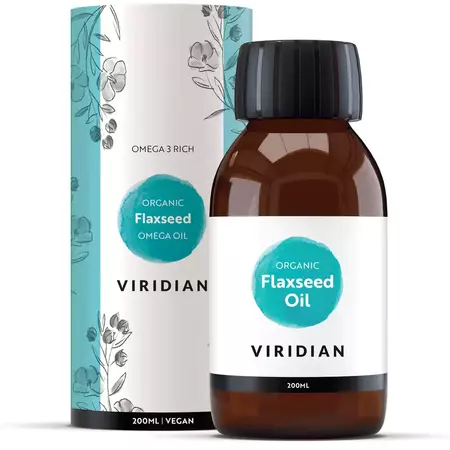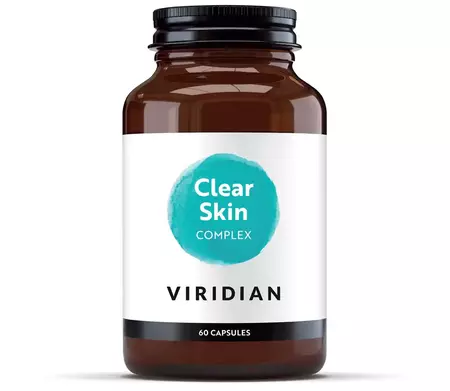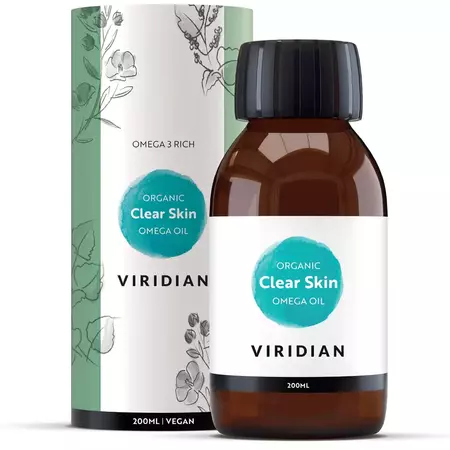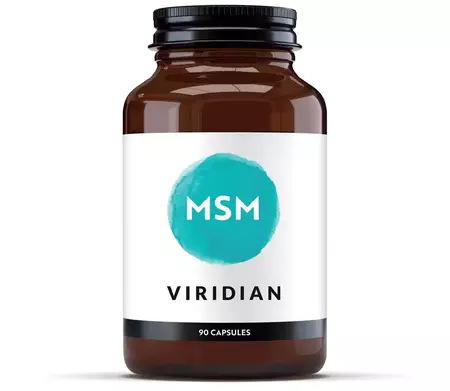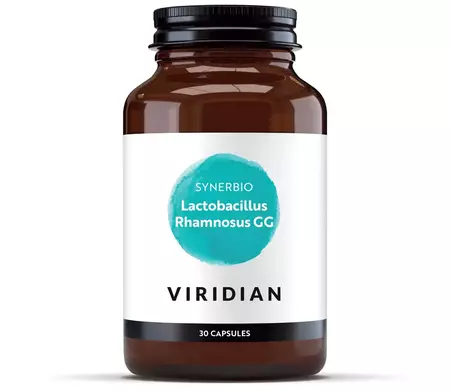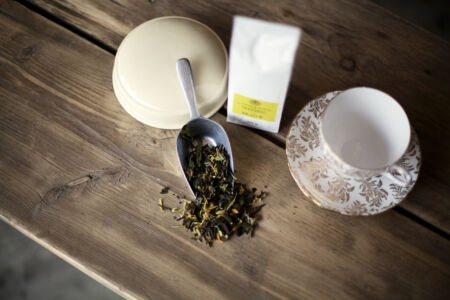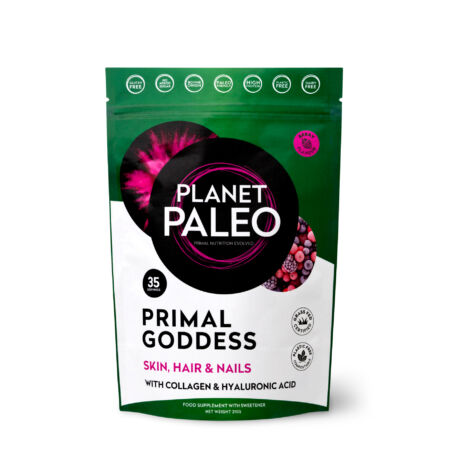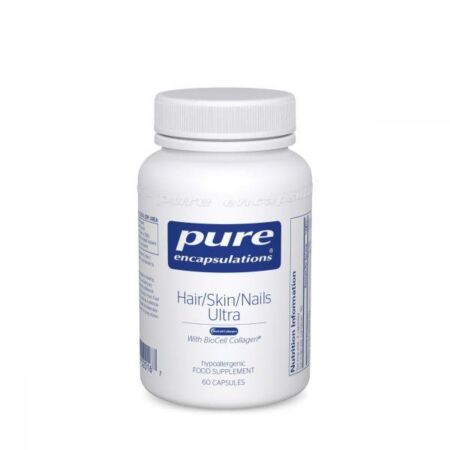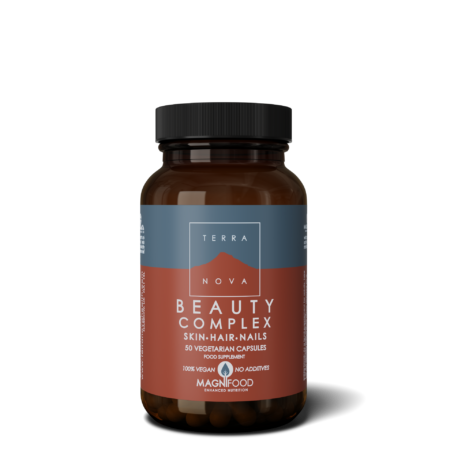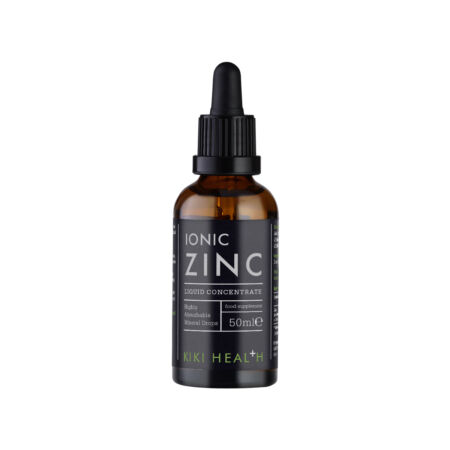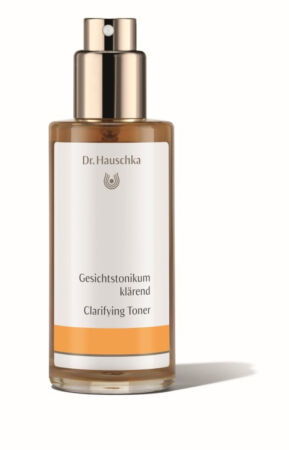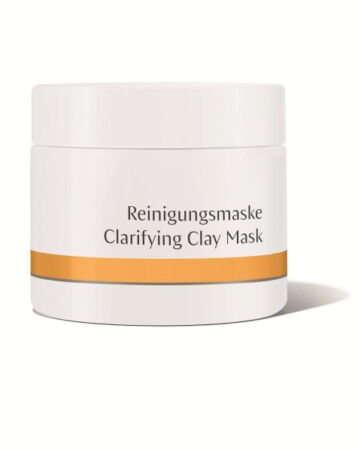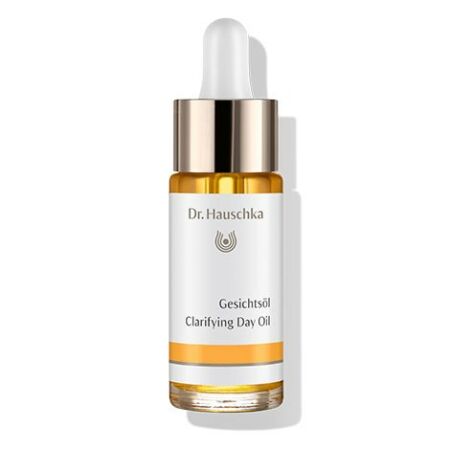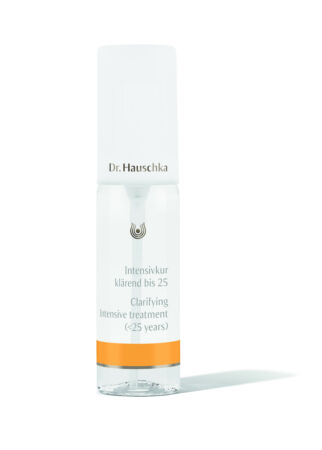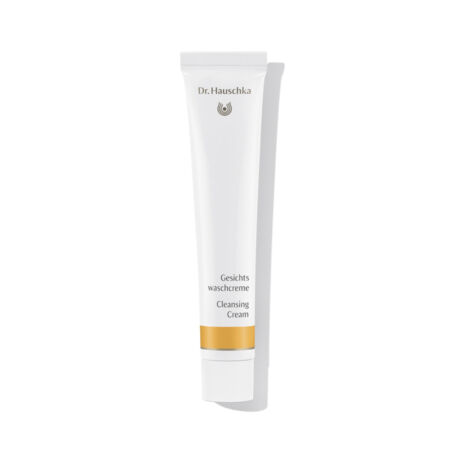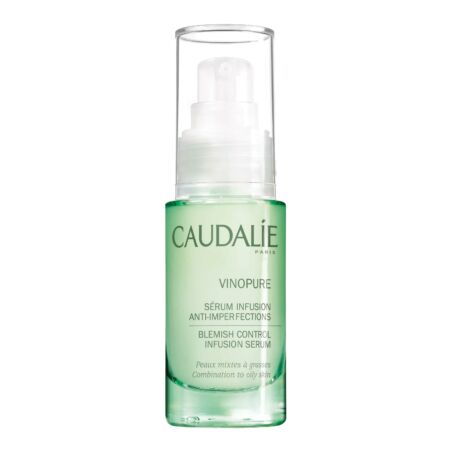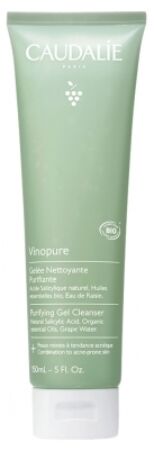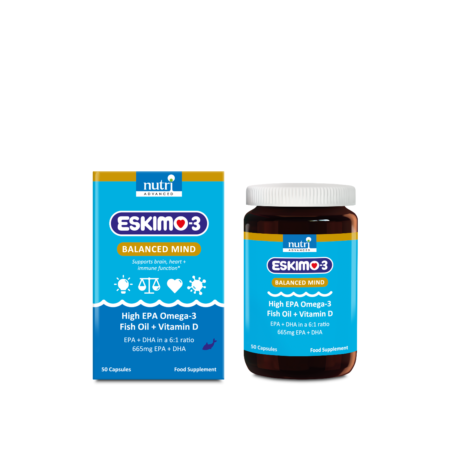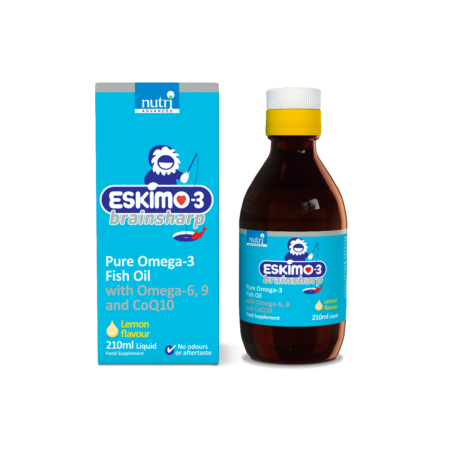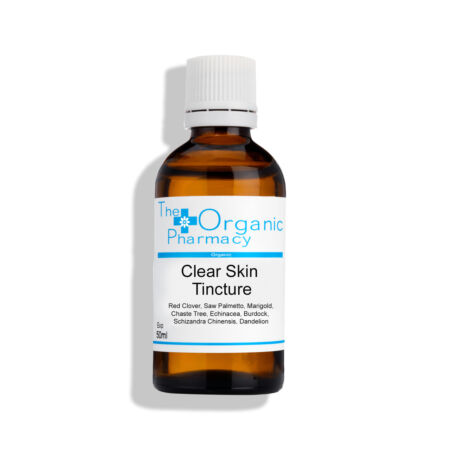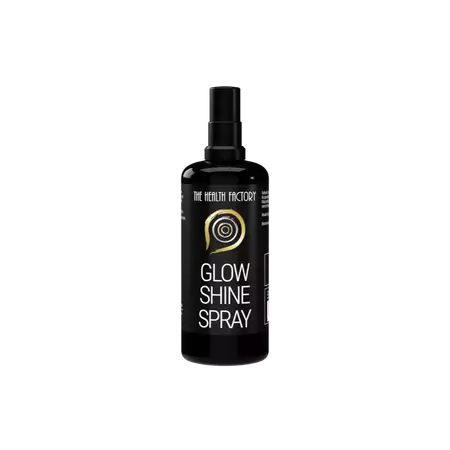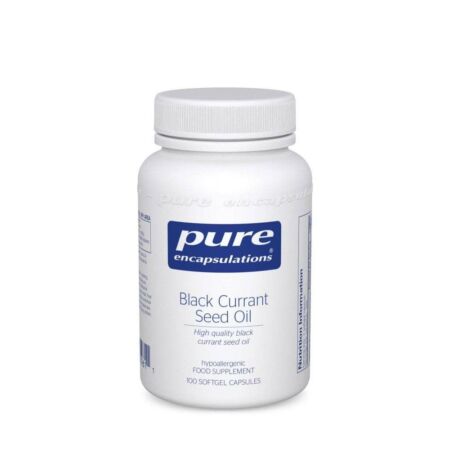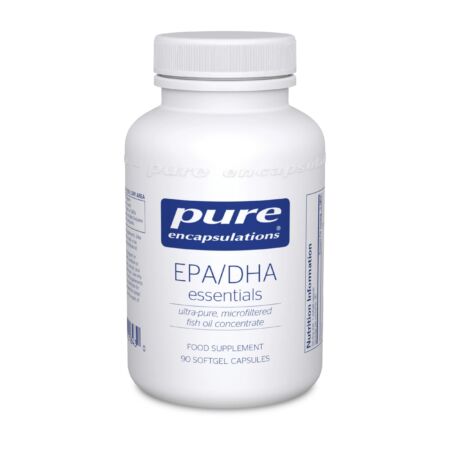Find out more about our nutrition and lifestyle approaches to reduce acne outbreaks and support spot prone skin naturally.
What is acne?
Acne is a common issue for people of all ages, but mostly for teenagers[1]
and those going through hormone changes[2]. The symptoms of acne are blackheads, whiteheads, nodules, cysts and pustules. These are usually found on the face but can also be on the neck, chest, back and shoulders.
In more recent years, instances of adult acne in women is increasing, and this is thought to be due to stress in professional and private life as well as anxiety and sleep quality[3]. These lifestyle factors affect our hormonal balance which in turn, impacts the health of our skin which we will go on to explain.
There are two main types of acne: acne vulgaris and acne conglobata. Acne vulgaris affects the hair follicles and oil secreting glands of the skin and is characterised as white heads, blackheads, and redness/inflammation[4]. Acne conglobata is a rare but more severe form of acne which forms cysts that have the potential to cause some scaring[5].
What causes acne?
Acne begins in hair follicles and sebaceous glands which produce sebum. Sebum is a mixture of oils to help lubricate the skin. The hormone testosterone stimulates cells within this follicle canal to produce keratin which is a protein on the top layer or skin, hair and nails. In acne, there is an over-production of keratin and because of where keratin if produced, it can block skin pores and sebum then becomes trapped, hence the resulting spots[6]. Testosterone also increases the size of sebaceous glands which causes them to produce more sebum.
Interestingly, it is thought that it is not the amount of testosterone produced which causes an increase in keratin and the increased size of sebaceous glands, but that people with acne show an increase in a particular enzyme called 5-alpha-reductase. This enzyme converts testosterone to its more potent form, dihydrotestosterone (DHT), and it’s this that seems to cause the issues[7].
Despite the fact that women have a lesser production of testosterone than men, this production remains fairly constant throughout the month. Through the first half of the cycle, this is dominated by higher oestrogen levels. However, during the second half of the cycle, progesterone elevates as oestrogen reduces. This hormonal shift allows the effects of the testosterone to be more pronounced hence why some females are more predisposed to outbreaks of acne just before their period.
At times of additional sebum production in the skin, this oily fluid provides a nutritional substrate for the growth of a normal bacteria of the skin microbiome called Propionibacterium acnes. When this bacteria is at a higher concentration on the skin, it acts like an adhesive in the sebum creating an inflammatory skin response and the formation of spots[8].
As well as hormones and lifestyle factors affecting these hormones, genetics also plays a role in someone’s susceptibility to acne, not to mention diet,[9]
and intestinal health[10]. Despite the complexity of the driving factors that can contribute to acne, this does actually mean that there are many areas that we can target from both dietary and lifestyle perspective to help to reduce symptoms.
Acne - what are the options?
Conventionally, the oral contraceptive pill is used as treatment for acne in women[11]due to the impact that the hormones have on the presentation of the condition. Other common treatments are antibiotics (targeting the role of the specific skin bacteria that influence the condition), topical creams[12]
and Roaccutane.
However, from a Nutritional Therapy perspective, there are plenty of things we can do to support the health of the skin and reduce the severity of acne. Here we give an overview of some of the key nutrient considerations when it comes to acne prone skin.
Nutrients and supplement options for acne
Omega 3
Omega 3 fats are anti-inflammatory fats both found in oily fish and vegetarian sources such as flax seed and flax oil having particularly high concentrations. Supplementation with these omega 3 essential fats has shown to significantly decrease inflammatory and non-inflammatory acne lesions[13].
From a dietary perspective there are various ways that you can include more omega 3 fats such as soaking a dessert spoon of flax seed overnight and consuming these daily either as they are or adding into a smoothie format. Alternatively, if you do eat fish then consuming three portions of oily fish such as wild salmon, sardines or mackerel each week will give you adequate EPA and DHA. There are also some great supplements to provide these essential fats such as the Viridian Clear Skin Oil or Vegan EPA & DHA or a fish oil supplement such as Lionheart capsules by Bare Biology.
Antioxidants
The role of antioxidants in acne progression has been studied for many years. More recent studies have shown that patients with acne show increased oxidative stress both in the skin and systemically. One study describes lipid peroxidation as the match that lights the inflammatory cascade in acne[14].
It is therefore nutritionally important that dietary antioxidants re considered as part of the protocol. This includes an emphasis on beta carotene rich foods including orange and yellow coloured foods such as carrot, pumpkin, squashes and sweet potato for example. Other antioxidants include vitamin C, vitamin E and Selenium too which are all equally important sources of antioxidants to support the health of the skin.
Zinc
Zinc is supportive for both hormone and skin health and it may help to decrease sebum production through its anti-androgenic activity[15]. Zinc has also demonstrated anti-inflammatory activity and has been shown to reduce the counts of Propionibacterium acnes[16]
that we discussed earlier.
Food sources of zinc include shellfish in particular but vegetarian sources such as pumpkin seeds also provide a great way to include more zinc daily alongside the additional benefits of increasing beneficial fats and fibre in the diet.
Digestive health
The gut-brain-skin axis is of vital importance to support due to the correlation between the gut and the skin microbiome. This can be supported through dietary modification looking at various factors including fibre intake, fermented foods and probiotic supplementation. The use of probiotics
have been well researched in relation to the health of the skin and particularly acne severity, by their ability to influence systemic inflammation, oxidative stress, glycaemic control, tissue lipid content, and even mood[17].
Reducing Sugar
Foods that convert to sugars quickly are classed as high-glycemic foods and have been shown to increase the tissue levels of 5alpha-dihydrotestosterone[18]
which as mentioned earlier promotes an increase in sebum production. It therefore follows that a reduction in high sugar food in the diet could be helpful in reducing acne.
Help to keep blood sugar levels balanced and stop insulin spikes by having a source of healthy fats and protein at each meal and reducing simple carbohydrates such as bread and potatoes.
Lifestyle factors impacting acne
Stress management is important as stress hormones can alter the natural balance of our reproductive hormones, which in turn, can cause havoc with our skin. Taking time out to focus on important and enjoyable self care routines such as baths, yoga, exercise, reading a book or any other relaxation techniques that help to balance the adrenal response are very important considerations.
These lifestyle factors can be overlooked when it comes to skin health. As can the importance of a good nights sleep! Our natural circadian rhythm is controlled by our cortisol response from our adrenal glands which directly impact our reproductive hormones and in turn our skin. If we don’t get a good nights sleep, this natural balance can be altered which can exacerbate all skin conditions including acne.
Skin care routines and acne
It is important to keep the skin healthy in cases of acne and using natural products is a great way to support this. Green People do a particularly good skincare range for teenage skin which contains natural antibacterial properties such as tea tree and zinc. Other brands such as Dr Hauschka offer a good range for acne prone skin including their lovely natural exfoliating Cleansing Cream
and their Melissa Day Cream to moisturise without blocking pores.
Acne and the importance of Nutritional Therapy
Our Nutritional Therapy team are experts in treating skin issue from the inside out. Beauty starts in the belly! If you'd like to find out more click here.
We hope that you have found this article useful and if you have any questions about the right formulas for your skin health, then do not hesitate to contact us for advice.



